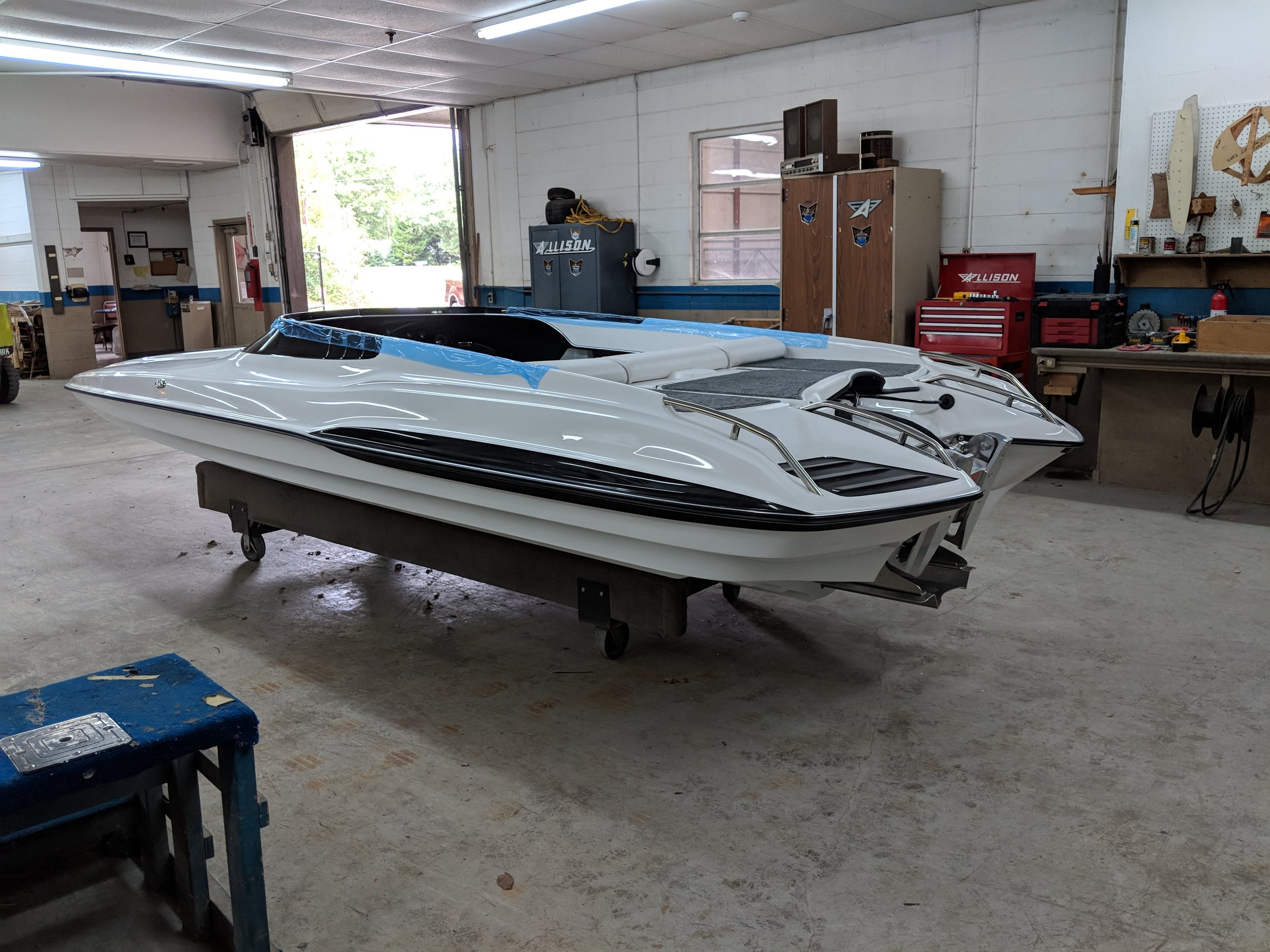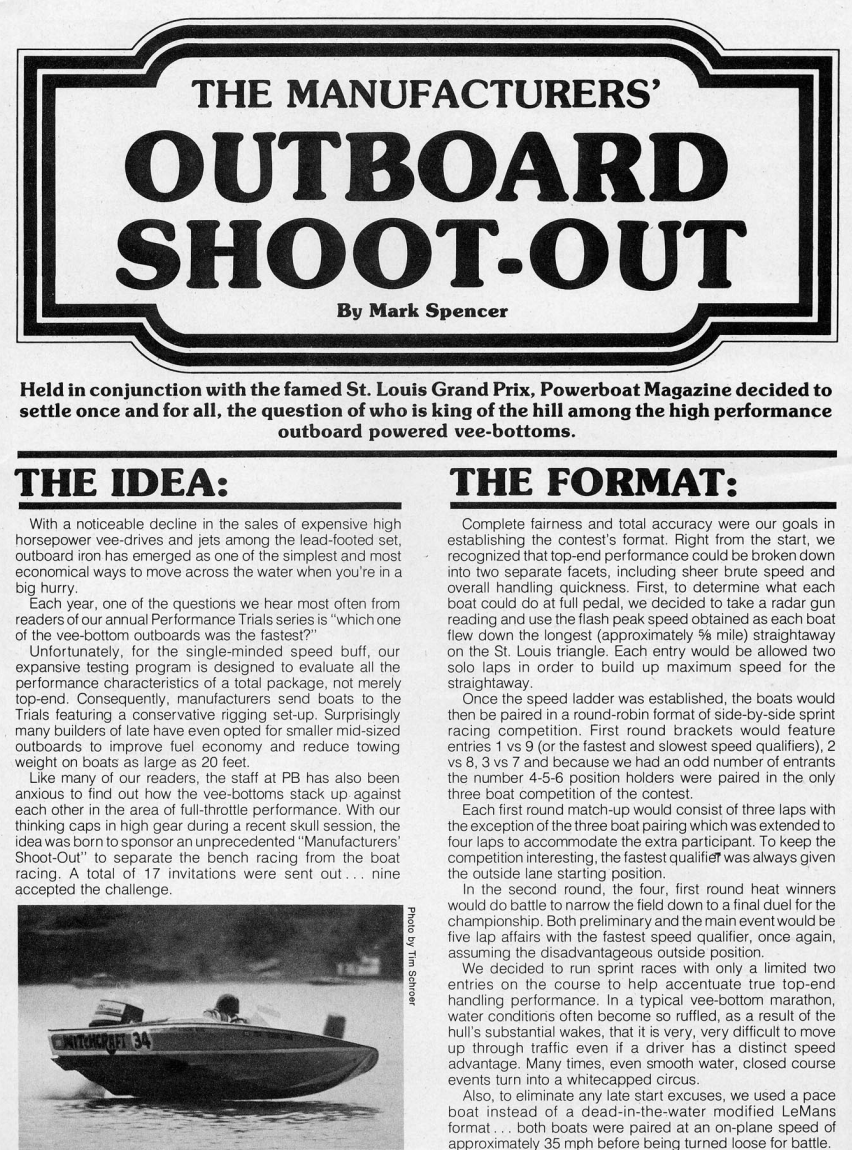Can Stock Outboard Engines Bring Back Amateur Boat Racing? New Engines Are Better
One thing we have discovered at Wave to Wave, is that there is a huge amount of interest in all things outboard. From re-powers, outboard conversions, new boats, and everything in between, outboards are all the rage. New technology has given us the most efficient and reliable outboards ever. Although, the one drawback has been the added weight the new platforms have. Considering some feedback we get, it is apparent that there is a lack of organized amateur race events for amateurs. Most of the small hulls we love, and some of the best boats made, were born from Mod-VP, SOB, or some form of racing class years ago. Now, grassroots racing events are regaining popularity in some areas. But, I think the key to success would be to have “stock” classes, where HP determines the category, and can only run an out of the box outboard; with only minor modifications allowed. Safe, economical, manufacturer supported events would be the key.
If I were to draw a parallel, it would be the popularity of car tracking events. The idea of tracking your car, in a variety of ways, has never been so popular. One of the attractions is that you can bring your basically stock car, and test your driving skills in any number of areas. With boats, it is not so dissimilar, some are interested in blasting a short drag racing course; as seen in Outboard Drag Boat Association event. And some enjoy a more offshore course orientated race, like OPA Class 7 might offer. Meaning, HP classes with stock engines would put the onus on the boat, setup, and driver. It balances the playing field, and makes it more fun for those on the fence about getting into racing. Plus, you can justify having a boat to race because you’re going to be running a reliable engine you would run anyway. By having an organized event system to participate in, there is not telling how popular it could become.
Power
The old two strokes were amazing, but we need to move on. Force manufacturers to improve the new technology.
One major pitfall with outboard racing now, is participants are running older 2 stroke Mercury’s and OMC’s. Those engines, although proven to be insanely durable and absolutely incomparable in power to weight, are getting antiquated. Heck, I’m 40 years old, and some mornings I feel I need a complete teardown and rebuild; these engines are the same, the cost is getting too great to keep these going. Factor in the total cost of ownership, and a newer generation four stroke, or modern two stroke in Evinrude’s case, makes way more sense in the long run. We did an article about the possibility of the new 4 cylinder four strokes being great candidates for lighter boats. In Europe, they have done a great job of conducting races with stock engines.
In Europe, they have been using new stock engines, like these 115 Etecs, in different HP classes for competitive races. The level playing field means you get better boats, and more participants.
Safety is the biggest thing when it comes to all types of racing. With stock engines, HP categories and specific rules you get safer races. Sure, you get slower top speeds, but any race on a course, or run offshore has little to do with top speed, in fact the uniformity creates the race. Nothing showcases the drivers skill and strategy like an even playing field. My dad used to race in small community events a long time ago, where the course was a designed around being simple and safe, no chance of collisions. What if it was similar to the Mod-VP races, but a staggered start, so you’re racing the clock, but also giving spectators plenty of action?
Another point is that it’s smart to have stock classes for other reasons. The only way to get major manufacturers to sponsor it, or condone it, is to have stock engines. Having manufacturers get behind safe, competitive, and community minded race events would be huge; and create a healthy rivalry. And for participants, the stock engines are way easier to find parts for. On top of that, the “green” engines are here to stay, it’s time to embrace it. Solid mounts is about the only mod they would need. Any stock 150 to 175 HP ProXS, Vmax SHO, or G2 is as potent as old small block two strokes were in those HP ranges, plus they are relatively affordable. One more benefit is that it is an incentive for builders to make more innovative boats. Demand would open the doors for builders to build boats for each HP class.
Let’s keep it simple, and keep it about racing. That would be fun.
We will be putting a new Mercury 150 four stroke on our Allison Grand Sport, and see what it can do with some minor modifications. Should be fun to see.
Friendly competition is a good thing. Racing brings innovation and creativity, producing some of the best engines and boats we have ever seen.










